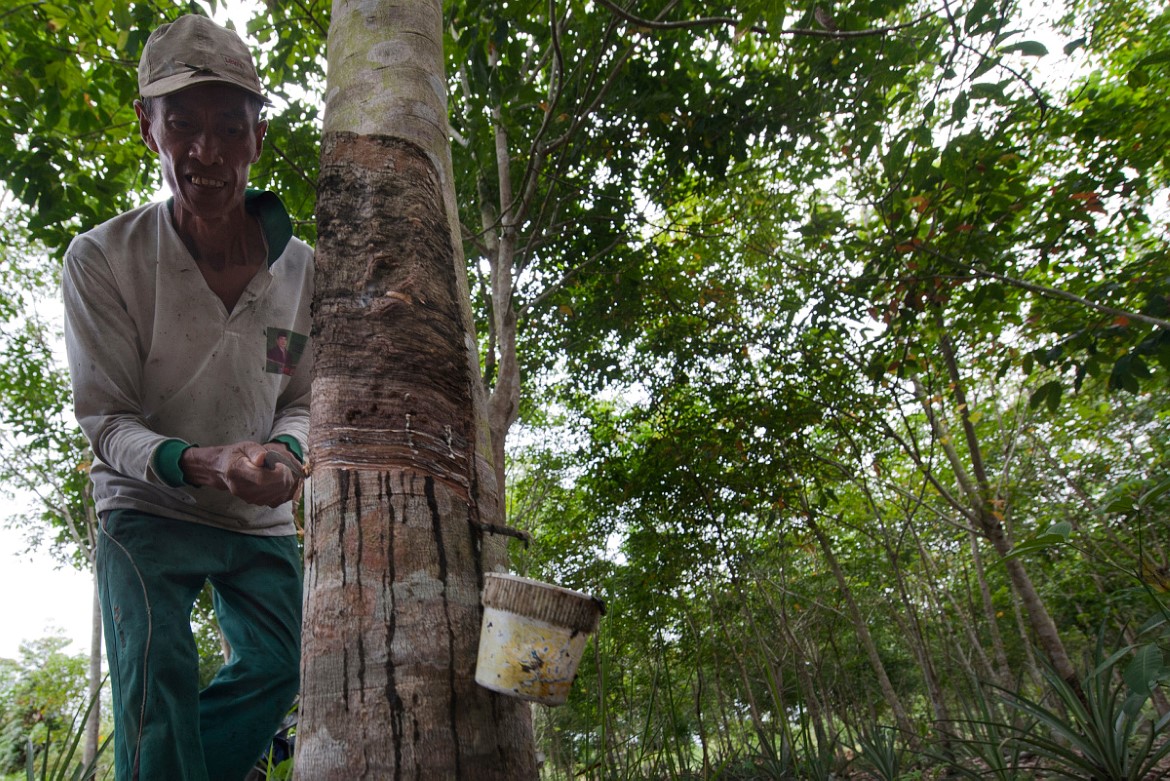
Focus on the Frontline
Organization
Forest Peoples Programme
Why
Despite the establishment of international forest funds, important global policy gains and zero deforestation pledges by companies and governments, forest destruction is ongoing or even increasing, mostly in tropical countries.
70-80% of tropical deforestation is linked to the production of agricultural commodities, and commercial farming drives more than two thirds of the forest clearance in Latin America, more than half in Asia and over a third of the forest clearance in Africa.
Poorly regulated forest governance and tenure is often linked to human rights violations and harm to forest peoples’ livelihoods, habitat destruction and climate damage. Threats, violence and criminalization of communities and forest defenders are on the rise in countries like Colombia and Peru.
Violence is perpetuated by weak protection systems for human rights defenders at local and national level in most forest countries. This is often coupled with a lack of concerted action to tackle the root causes of forest and land conflicts linked to forest-risk supply chains.
What
Budget
Norad intends to offer NOK 31,9 million million in total for the period 2018-2020
The project will strengthen civil society efforts to promote sustainable development and human rights, and seek to address direct and underlying deforestation drivers and reduce emissions caused by land-use change linked to industrial agriculture and extractive industries.
FPP and partners will contribute to this objective through the collection of local evidence, the completion of gap analyses, and the use of redress mechanisms coupled with focused advocacy and sharing of supply chain reform proposals and best practice.
FPP and partner actions will promote these solutions by applying a rights-based and bottom-up approach with indigenous peoples, forest-dependent communities and our local partners in Indonesia, Colombia, Peru and Guyana.
Project efforts linking forest peoples to policy makers will be boosted through collaborative work with international allies to generate evidence identifying the barriers to change and documenting best practice for sharing in national and global policy discussions. FPP will give special priority to the provision of legal and technical assistance to partners, communities and environmental defenders to support local and global advocacy and redress actions.
Expected results
The planned effects on society is “slowed deforestation and reduced human rights abuses at the agricultural/extractives frontier”
Target groups are forest-dependent indigenous peoples and local communities, private companies, and decision-makers at local, regional and national levers. The expected outcomes for the target groups are:
- Indigenous and forest dependent peoples are better able to monitor and defend their forests and territories
- Mechanisms established or strengthened for the protection of human rights defenders and legal assistance to communities
- Strengthened Environmental, Social & Governance systems in targeted companies
- RSPO and FSC certification bodies and related standard setting initiatives have better frameworks to uphold environmental standards, prevent deforestation and protect human rights
Documented progressive shifts among national and international policy makers towards improved statutory regulation of supply chains Partners
Indonesia
The Sustainable Forest Peoples Foundation – Yayasan Masyarakat Kehutanan Lestari, Yayasan Pusaka, Bahtera Alam, WALHI-KalBar, LinkAR-Borneo, Perkumpulan Nurani Perempuan- The Bahau Dayak women’s organization, AMAN Tano Batak
Colombia
Inter-ecclesiastical Commission for Justice and Peace (CIJP), Corporation for Solidarity in Development, Regional Indigenous Council of Middle Amazonas and Association of Indigenous Councils of the Lower Caquetá, Palenke Alto Cauca, Cañamomo Loma Prieta Indigenous Reserve Council
Peru
The Federation of Native Communities of Ucayali and its Tributaries, The Autonomous Territorial Government of the Wampis Nation, The Institute of Legal Defence, AIDESEP
Guyana
Amerindian Peoples Association (APA), South Central Peoples Development Association (SCPDA), Digital Democracy (DD), Rainforest Foundation US, New York School of Law Global Justice Clinic (GJC)
Geographic location
Indonesia, Colombia, Peru and Guyana.
About the project descriptions
The project descriptions give insight in the NICFI portfolio for civil society organisations supported by Norad.
The descriptions presented are written by the project partners. Only minor edits have been undertaken by Norad. Their presentations and conclusions do not necessarily reflect the views of Norad.
